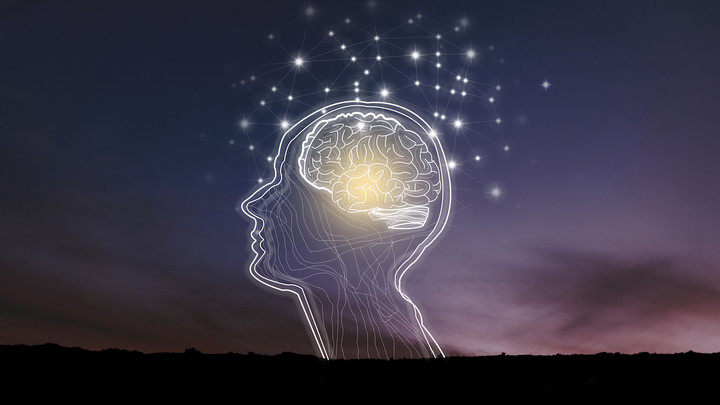Artificial Intelligence: Recommendations for Action for Future-Oriented Politics
To fully harness AI’s potential, eco Chair of the Board Oliver J. Süme urges politicians to promote societal acceptance and to strengthen both digital infrastructures and research & development.

© Urupong | istockphoto.com
Worldwide, artificial intelligence (AI) is the uppermost digitalization topic of the future, and one with which policy-makers must also really get to grips. The new AI technologies, the rapid pace of their development, and the handling of sensitive data are all presenting new questions and challenges.
With the new study “Artificial Intelligence – Its Potential and the Lasting Change of the German Economy”, which was prepared together with Arthur D. Little and with the support of the Vodafone Institute, eco – Association of the Internet Industry is contributing to the political dialogue for the responsible handling of data for innovative AI business models.
In order to promote AI technologies in Germany and the European Union (EU), the Internet industry association recommends that policy-makers undertake the following actions:
Harness the economic & societal potential of AI
Policy-makers must effectively harness the potential of digital business models and forward-looking technologies such as AI and act swiftly to remove recognized obstacles. Only through the targeted use of AI can Germany and the EU catch up in international competition in the context of digitalization. For example, if AI is applied nationally across the board in Germany, a growth in gross domestic product of over 13 percent is realistic by 2025, which would correspond to a total potential of approximately 488 billion Euros.* The impact of AI will be felt in all sectors of the German and European economy. Retail & Consumer Goods, as well as the Energy, Environment & Chemical sectors are those that stand to benefit the most. However, in order to achieve this, politicians must create the necessary framework conditions.
Remove existing legal uncertainties for AI applications
A standardized and reliable legal framework is an essential determinant for the successful economic utilization of AI. This is especially true when it comes to data protection. With its fundamental principles of accountability, transparency, and strong data subject rights, the European General Data Protection Regulation (GDPR) provides a good foundation for the data processing of artificial intelligence. The forthcoming evaluation of the GDPR should be used to remove any legal uncertainties that nevertheless still exist.
Call a halt to sluggish regulatory approaches
To allow AI to be handled in a manner which builds trust, the respective algorithms must be of high quality. This can only be achieved through innovative research and development processes, which should not be held back by rigid and overbearing regulation. When it comes to the auditing of artificial intelligence as envisioned in the German national AI strategy, for example, the focus should therefore be on a practicable approach. A blanket ex-ante regulation should be avoided.
Create societal acceptance for AI through transparency and education
The only way to strengthen people’s trust in an autonomously operating and decision-making system is to make the use of artificial intelligence transparent in terms of its technologies, algorithms, and decisions. Education is the key to societal acceptance and the responsible use of artificial intelligence. Imparting basic knowledge about artificial intelligence systems and methods must become part of the general public education mission. For a comprehensive educational understanding which embraces technical, socio-cultural, and application-oriented perspectives of AI in equal measure, what is needed is a joint approach by politics, business, academia, and society.
Treat data protection & security standards as determining factors for the success of AI
While the societal benefit of self-learning systems may be evident, ultimately, a broad societal acceptance of AI will be heavily dependent on system security. Such security determines whether the technology is controllable and thus trustworthy. IT security must therefore be factored into all AI concepts right from the start. Open, interoperable standards and high IT security requirements could give Germany and the EU a decisive advantage in international competition. Without compromising the protection of citizens’ data, policy-makers must make better use of the potential of digital business models and AI technologies for society.
Strengthen digital infrastructures
Digital infrastructures are the backbone of new future technologies such as artificial intelligence and of the successful digital transformation of Germany and the EU. The challenges as well as the innovation and impact potential of such infrastructures must be accorded greater economic weight and integrated into political concepts. It is eco’s view that a high-performance digital infrastructure is essential for the creation of a strong ecosystem for artificial intelligence. In the long term, what is required for the market launch of reliable and secure AI applications and for securing digital sovereignty is not only secure and high-performance data centers, but also education, research, and innovative industrial manufacturing.
* This is the result of the joint study by eco and Arthur D. Little, which was also supported by the Vodafone Foundation Germany.
Oliver Süme is a certified IT lawyer and partner at the European law firm Fieldfisher in Hamburg, Germany. He is an IT and technology law specialist with two decades of experience in the field. Oliver advises national and international clients from various sectors on their path to digitalization. Data protection, IT security, and IT contracts are among his key areas, as are the legal impact of new technologies such as blockchain, Internet of Things, and Industry 4.0. He has a particular focus on advising international Life Science companies on data protection and GDPR compliance.
Oliver held the presidency of the European ISP association EuroISPA for five years until 2018, and in 2017 took over the role of Chair of the Board at eco – Association of the Internet Industry.






